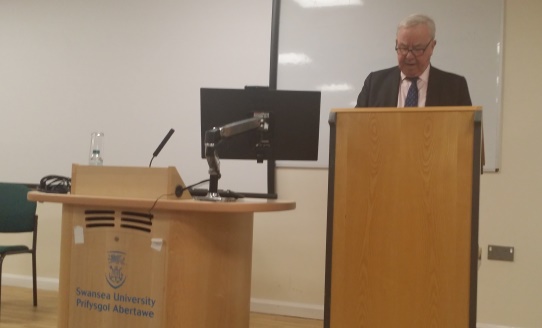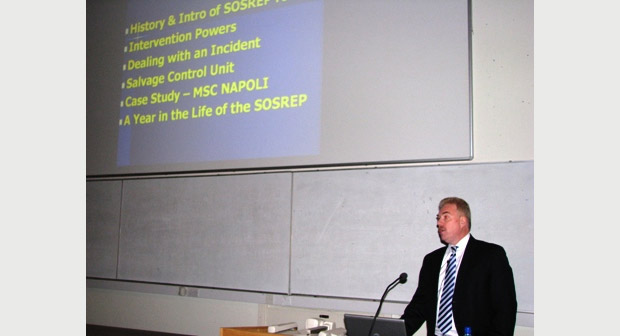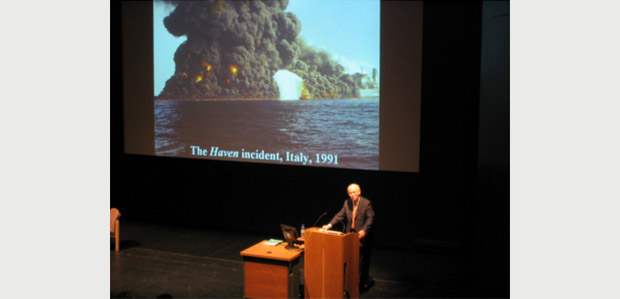Lord Clarke, previously the legendary Anthony Clarke KC of 2 Essex Court, was the guest of the Institute of International Shipping and Trade Law (IISTL) on 1 December to deliver a public lecture on “Ethics” to a large gathering of members of the public, academics, University officers and students.
In his lecture, his Lordship evaluated the ethical standards expected of lawyers by giving examples from his long career at the Bar and on the Bench (including a stint in the thankless position of Master of the Rolls), which started in 1958. The first High Court judge to be elevated directly to The Supreme Court, he was introduced at the event by Professor Elwen Evans KC, Head of the School of Law, a fellow esteemed criminal barrister.
The night ended with a lively Q&A session, after which Professor Soyer, Director of the IISTL, warmly thanked Lord Clarke for, among other things, making it clear that the consistently impeccable ethical standards observed at the Bar was something that distinguishes this jurisdiction from many others and remained one of the selling points that attracted parties from all around the world to arbitrate and litigate in England and Wales.
The SOSREP is responsible to the UK government for marine emergencies within UK waters involving vessels or fixed platforms when there is a significant risk of pollution, and is tasked to oversee, control and, if necessary, to intervene and exercise 'ultimate command and control' in the overriding interest of the UK. The role was created in 1999 as part of the Government's response to Lord Donaldson's review of salvage and intervention and their command and control. Mr Shaw indicated that the need to co-ordinate salvage response in pollution cases became clear following the Sea Empress incident in 1996, which had catastrophic consequences for the Welsh coastline.
At the end of his lecture, Professor Andrew Halpin, the head of the Law School, thanked Mr Shaw for his stimulating presentation and introduced an open discussion on some of the key issues that had been raised.
Mr Jacobsson, Director of the International Oil Pollution Compensation Funds (IOPC), who visited the Institute of International Shipping and Trade Law in January 2006, also delivered the annual public lecture of the School of Law. The lecture entitled "International Regime and Compensation for Ship-source Oil Pollution Damage: The Legal and Political Aspects", attracted interest both from the University and also from the region, in particular local law firms, environmental agencies and port authorities. The Vice-Chancellor of the University, Professor Richard Davies, was also present at the lecture. The lecture was followed by a reception which allowed guests to engage in further stimulating debates with Mr Jacobsson on legal and economic aspects of oil pollution.
The lecture of Mr Jacobsson was particularly timely, in view of the School's collaboration with Technium Pembrokeshire for the establishment of the Centre for Environmental & Energy Law & Policy. The development of the Pembrokeshire Technium arises out of the emergence of this region as a major supplier of natural gas for the UK , as well as its historic and continuing importance in oil refining.



